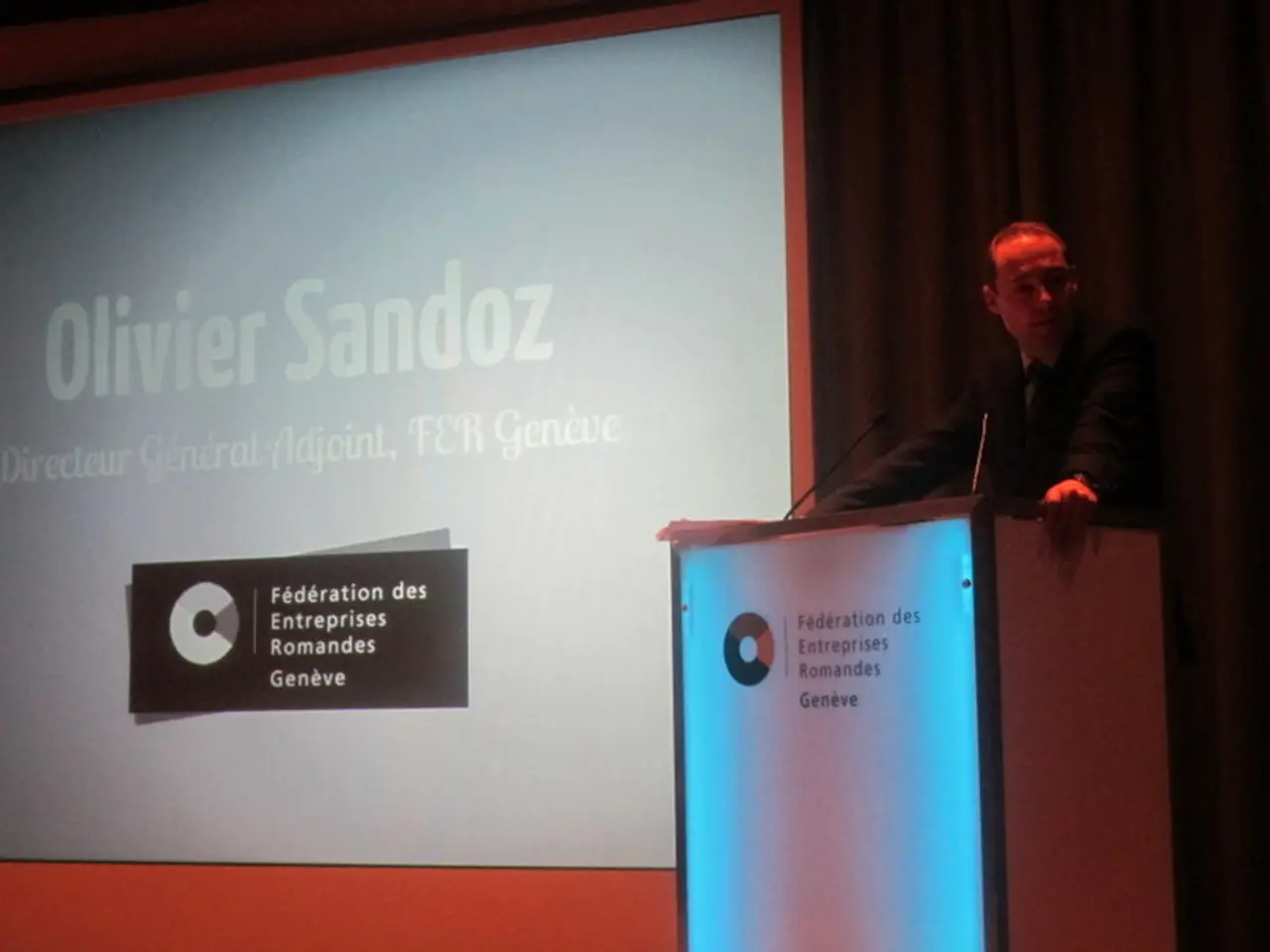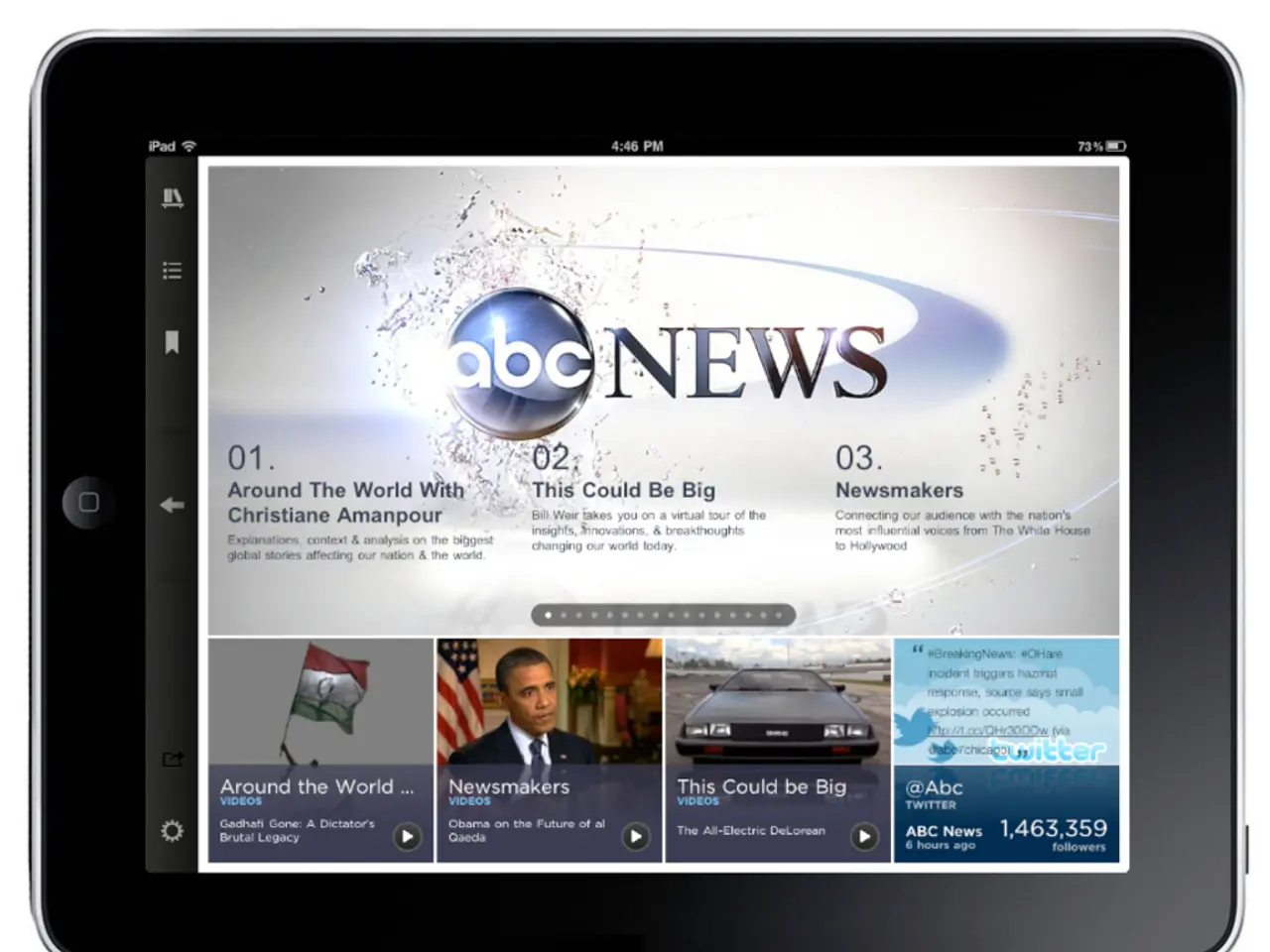Catch-22 for Teachers: Navigating Smartphone Use in Schools Amid Privacy Concerns
- *
Educators seek definitive, legal guidelines concerning mobile devices. - Educators Seek Clarification on Legality Regarding Mobile Phone Use
In the heat of the school day, a student boasts about having explicit content on their smartphone during break. Or so a teacher claims to have heard. But what should the teacher do next? The response isn't always crystal clear, as the recent expert hearing in the education committee of the Schwerin state parliament revealed.
Teachers tread a fine line if they decide to investigate such claims, potentially infringing upon students' privacy rights, experts warned. The chairwoman of the school management association of Mecklenburg-Vorpommern, Heike Walter, insisted that teachers deserve better legal protection from the state to act appropriately without jeopardizing the students' privacy. The Potsdamer professor of digital education, Katharina Scheiter, echoed this sentiment, stressing that clear legal guidelines for enforcement would be beneficial for teachers.
Professor Rainer Riedel, a neurologist and psychotherapist, likened the situation to traffic regulations. Using a phone while driving is strictly prohibited, and punishable by fines and points on one's driving record. If similar clear-cut regulations were implemented for students, teachers would have a clear framework to follow, he argued.
When it comes to setting rules for personal digital devices like smartphones or smartwatches in school, schools crave autonomy, as the expert hearing confirmed. Many schools have developed rules alongside students and parents during school conferences. In some primary schools, students are required to switch off their phones entirely or hand them in upon arrival. Older students are granted more freedom to use their devices.
The principal of Grundschule Sandberg, Neustrelitz, Betty Hirschfeld, supports a ban on private smartphones for students up to the end of secondary education. Meanwhile, Dr. Rainer Riedel advocates for "phone-free zones," citing concerns about the negative health effects associated with excessive digital media use, including poorer vision, obesity, and clumsiness.
However, Felix Wizowsky, chairman of the state student council, disagrees with a total ban on smartphones in school, stating that such measures only lead to a cat and mouse game between students and teachers. Instead, he suggests that smartphones should be used as educational tools, as long as students are taught proper digital etiquette and self-regulation.
Minister of Education Simone Oldenburg (Left Party) aims to create a guide to help teachers handle smartphone-related issues legally. The guide will also provide recommendations for implementing feasible regulations tailored to different types of schools. The Minister has expressed opposition to a complete ban on mobile phones, tablets, or smartwatches in schools. Instead, she suggests considering age, usage, and manners of digital devices and establishing school-specific rules. Many schools have already embraced this approach.
- Smartphone
- Teacher
- Legal clarity
- Schwerin
- Education
- Mecklenburg-Vorpommern
- Flensburg
Insights:
- Digital Media Use in Schools: Across Germany, there's a growing tendency to restrict or even ban mobile phones in schools, with some regions advocating a total ban as early as primary school[1].
- Legal Frameworks: Teachers are expected to abide by legal frameworks that prioritize students' privacy and create a safe learning environment. These frameworks include adhering to data protection laws and respecting students' property, while also ensuring that illegal or harmful content is reported.
- Investigating Inappropriate Content: When teachers encounter inappropriate content, they should follow school policies and seek assistance from school administrators or legal authorities if necessary. Reports to relevant bodies like the police or child protection services are common when the content is illegal or harmful.
- Parental Involvement: Parents are usually informed and involved in dealing with inappropriate content situations as part of an educational approach.
- Educational Approach: Incidents of inappropriate content are often treated as opportunities to educate students about digital literacy, online safety, and responsible media use.
For Mecklenburg-Vorpommern-specific guidelines, consulting local education authorities or legal experts conversant with regional regulations is advised. However, the general approach in Germany balances maintaining a safe educational environment with protecting students' rights.
- In Mecklenburg-Vorpommern, the school management association is calling for better legal protection for teachers to address issues related to student smartphone use and privacy, as the lack of clarity in the current legal framework can pose challenges.
- Meanwhile, a neurologist and psychotherapist, Rainer Riedel, proposes clear regulations for smartphone use in schools, similar to traffic regulations, to provide teachers with a clear framework to navigate such issues.
- Despite calls for a complete ban on smartphones in schools, the chairwoman of the school management association in Flensburg, Agnes Krohn, advocates for a balance between a safe learning environment and students' rights, agreeing with the Minister of Education Simone Oldenburg who suggests tailoring school-specific rules based on factors like age, usage, and manners of digital devices.




